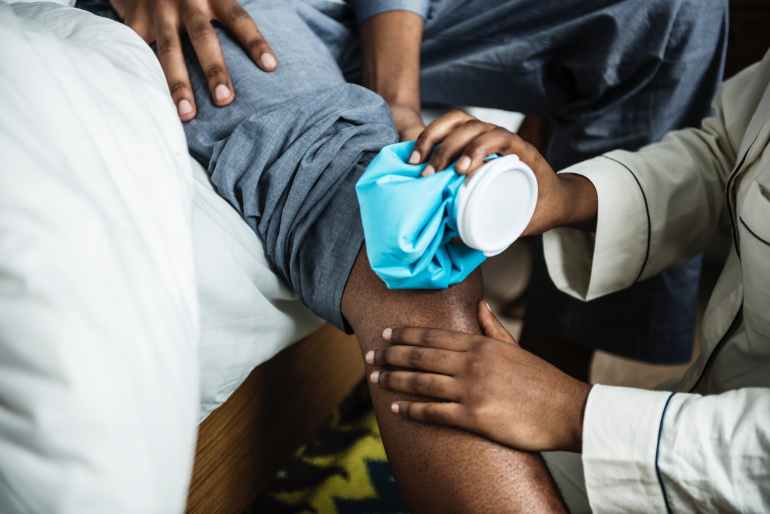
BIPOC refers to it is the acronym, which stands for Black, Indigenous and people of color. And the same group of individuals who are underserved in most health settings. So often I hear stories from friends and family members regarding their healthcare experiences especially during the since of urgency. A friend of mines recently shared with me that she presented to the ER with pain radiating up and down her back. She sat in the waiting room for hours before she was attended to. Not only was her pain untreated but, healthcare professionals failed to acknowledge her long wait, and her constant complaints of pain. “I feel like they thought that I was there just to get free pain meds, and I literally was just in a car accident. I told them a hundreds of time that my back is killing me, and they treated me like a crackhead or junkie. This incident like many others made me question….“Why do certain groups of people get treated differently in hospital or care facilities?” “Doctors take an oath to treat all patients equally, and yet not all patients are treated equally. Well the answer to why is complicated.”
Examples like this illustrates “negative assumptions and associations that we can label as racism, but “most physicians are not explicitly racist and they are committed to treating all patients equally. However, they function “in an inherently racist system.” In addition, healthcare professionals know that their own subconscious prejudices, also called implicit bias, can affect the way that they treat patients. Basically, there are so many layers and levels to this issue”, it’s hard to determine the reason why or even properly address it. However, I can mostly certainly say that speaking about this issue implies that doctors are doing something wrong and immoral and no physician wants to be accused of such behavior, so issues like this continue to go unaddressed.
Unconscious Racial Biases “According to a study published in the American Journal of Public Health in March 2012. The study found that a staggering two-thirds of doctors exhibited racial bias towards patients unintentionally. The researchers determined this by asking doctors to complete the Implicit Association Test, a computerized assessment that calculates how fast test subjects associate people from different races that demonstrated positive or negative terms.” Those who link people of a certain race with positive terms more likely to address the severity of their cases, than those people who are linked with a negative terms. “The doctors who participated in the study were also asked to associate racial groups with terms that signal medical compliance. Researchers found that the doctors exhibited a moderate anti-Black bias and thought of their White patients as more likely to be “compliant.” 48% of health professionals are White ,22% were Black and 30% were Asian. The non-Black health care professionals exhibited more pro-White bias, while Black health care professionals did not exhibit bias in favor or against any group.” The outcome of this study was profound. This study demonstrated that nearly half of white physicians who are responsible for treating people of color demonstrated unconscious biases. The study further indicate that when physicians treat patients of color they failed to address the severity of each case including follow up , pain management, and offering alternate care options if any at all leaving people of color misdiagnosed and or untreated.
The impact that this has on minority health Such behaviors lead minority patients to feel disrespected by medical providers and sometimes suspend care and go for years left untreated. In addition, some physicians fail to give patients of color the same range of treatment options as they offer to White patients. Medical racism won’t dissipate until medical schools teach doctors about the history of institutional racism and its legacy today. Because of this, minorities are faced with a 20-year gap in life expectancy than any other race. Across the United States, Black people suffer disproportionately from some of the most devastating health problems, from cancer deaths and diabetes to maternal mortality and preterm births. Although the racial disparity in early death has narrowed in recent decades, Black people have a less life expectancy, nationwide, that White people had in the 1980s—about three years shorter than the current White life expectancy. African Americans face a greater risk of death at practically every stage of life. People of color are often dehumanized in healthcare settings, and healthcare professionals do not believe that they are in actual pain or distress during the time of visit. What’s astounding to know is that each healthcare professional can acknowledge flaws within their own cultural setting but for some reason they magnify flaws or exhibit biased behavior they have towards people of color.
Current and Future Treatment Options As a Cancer Research professional I can most certainly attest to the large disparity of treatment options for minorities. I have spoken to many family members and friends about their medical care and over half of them report a poor experience; they are never offered alternate treatment options for their conditions. The Pharmaceutical companies execute Clinical Trials that only include a small number of minorities if any at all. This means that drugs are placed on the market that includes a majority of White men and women, a small fraction of Asian men and women, and an even smaller number of African American men and women and other people of color. This means that treatment options that are approved by the FDA was only tested for a specific genetic make up that doesn’t include minorities. Therefore, minorities are left out in the advancement of medicine that fits their needs, which leaves them with fewer treatment options and a possible shorter life expectancy. Healthcare organizations have been accused of overlooking the experiences of people of color when it comes to treatment options and overall don’t offer the same treatment options to Blacks as they do any other group.
What does this all mean? Medical racism continues to affect people of color in contemporary America in a variety of ways in a manner that doesn’t affect any other race . Doctors are unaware of their unconscious racial biases that impacts their treatment of patients of color such as lecturing them, speaking more slowly to them so that they may understand, and keeping them longer for visits to ensure that made the correct medical decisions, and providing follow up care. Racism continues to affect health care because many physicians are unaware of their subconscious biases towards people of color. Does this mean that all physicians racist?, No but it’s an implicit doctrine that is embedded in their sub consciousness that causes them to intrinsically treat patients of color differently, dehumanizing them and deterre from building a relationship of trust, or properly treating the severity of their case. Dr. Morgan Says; “It’s hard to change subconscious attitudes, but we can change how we behave once we are made aware of them,”Researchers, educators and health professionals need to work together on ways to reduce the negative influences of these attitudes on behaviors in health care.” As I said earlier, no one wants to have this conversation in order for it to be addressed. Bias in medicine may also lead physicians to inadequately manage the pain of minority patients. Most physicians do not believe that minority patients are in the amount of pain they are in even when severity is expressed. A number of studies have shown that doctors are reluctant to give Black patients strong doses of pain medication, follow up treatment, alternate treatment and fully review their case for an accurate medical decision this leads to misdiagnosis, wrong medication prescribed and other medical errors that puts people of color at higher risk than any other race. So what can minorities do to aid the betterment of their healthcare. Below are some ways you can take control of your health:
- Do your research– I can’t stress this enough it is vastly important to know your health condition as well as the health condition of your family to identify any genetic challenges that may put your at risk. Now your Google search may not replace a medical degree for sure but use accredited references to be very knowledgeable about your condition.
- Keep track of your appointments and know your rights as a patient.
- Research your doctor and prepare a list of questions to ask during your appointment.
- Implement healthy habits (I.e. diet exercise, healthy food options).
- Invest in your health!!!!!!- Skip the movies here and here and save to put money towards your healthcare.
- Ask your physician to speak slowly and in ways you understand and ask questions when you don’t.
This battle is long winded for sure. Undoing the lack of trust minorities have towards healthcare professionals and the racial bias healthcare professionals have towards minorities is a challenge. However, minorities can take more control of the direction that their health is headed in. Therefore, I would like to encourage everyone to invest in your well being and stay informed. We innovate , empower and Inform the BIPOC communities for better health outcomes because; Black Health Matters, too!! Together we can create a better healthcare system for all.
Works Cited: https://www.health.harvard.edu/blog/racism-discrimination-health-care-providers-patients2017011611015

